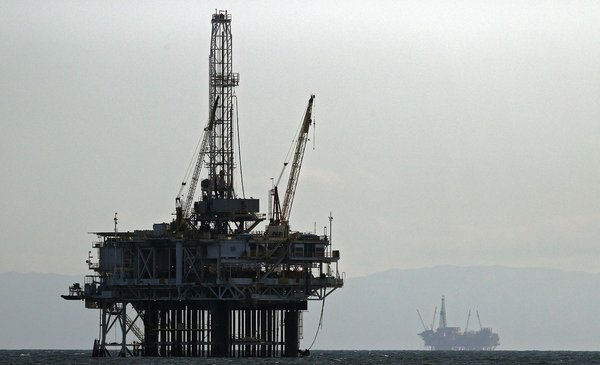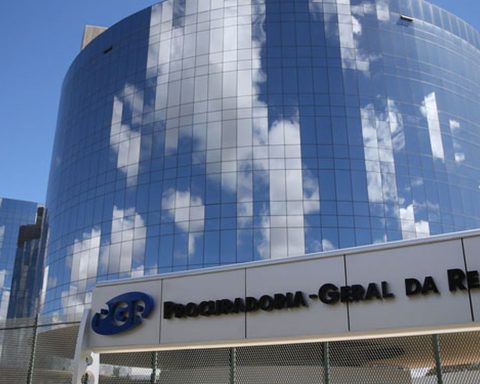Since the beginning of the pandemic with its aftermath of rupture or weakening of world trade, the rise in hydrocarbon prices and the increase in inflation, aggravated by the war in Ukraine, the world’s governments and companies have tried to resolve the crisis that multiple interdependent factors has triggered.
The constantly rising gas and oil prices are emerging as one of the greatest challenges facing the markets, putting on the order of the day the need to seriously consider planning how to move from an energy supply based on the consumption of fuels of origin fossil to one based on renewable alternatives with low or zero CO2 emissions.
At the recent meeting of the World Economic Forum in Davos, the Executive Director of the International Energy Agency, Fatih Birol, said that the world was “in the midst of a global energy crisis”.
Also at that meeting, a panel of experts and business leaders discussed the global actions that should be taken to get out of the current complicated situation.
“We are at a crossroads! Said María Mendiluce, CEO of the We Mean Business Coalition, an association that brings together seven organizations specialized in the study of climate change. Refuting the argument that to get out of the energy crisis it is necessary to invest more in fossil fuels, Mendiluce believes that, on the contrary, because investments in hydrocarbons are currently greater than those necessary for the exploitation of solar energy or wind, investing in clean renewable energy would be the only way to keep global warming at 1.5 degrees above pre-industrial levels, one of the fundamental points of the Paris agreements of October 2016.
Patrick Allman-Ward, CEO of Dana Gas, a natural gas company in Abu Dhabi, expressed himself in a similar sense to that of Mendiluce, noting that gas production and consumption could be considered as an alternative to oil, on the way to generalization the use of fuels from renewable sources.
The reality is that the world, especially Europe, is replacing the generation of energy based on fossil coal towards the use of natural gas, a movement that is already shared by forty countries that shared the conclusions of the COP26, the 26th. United Nations Conference on climate change.
Germany is closing its fossil coal plants and Portugal closed its last coal plant in 2021, as are Belgium, Sweden and Austria.
The result of the closure of plants and their replacement by natural gas has been a constant increase in demand and therefore an increase in prices and a strong pressure on supply that meant the appearance of bottlenecks, especially at the time when that -with the loosening of restrictions due to the retreat of the pandemic- the economies began to recover.
Difficulties in the supply of gas caused energy demand to shift back to coal and oil, with the consequent increase in prices that today are above 120 dollars a barrel of Brent oil and no less than 40 dollars a million. of BTUs of natural gas.
The conflict in Ukraine has aggravated the global picture of the energy balance, since a third of the natural gas consumed by Europe comes from Russia and its supply has become critical for the community, due to the declining trend of local production in recent years.
Climate can also be an extra-economic factor that disrupts energy supply and demand structures. Very cold winters or very hot summers that trigger the demand for heating or air conditioning, add tensions not only in prices but also in the financial realities of the States that must face subsidies and assistance expenses for families and companies whose energy needs have increased. more than normal.
The current rise in gas, oil and coal prices defies all expectations and, according to experts and business leaders, could only be the beginning of a critical situation equal to or worse than the oil crises of 1973 and 1980.
But the current problems would not be limited, as in those years, to the increase in oil prices, in the words of Faith Birol to Der Spiegel, “we have an oil crisis, a gas crisis and a gas crisis at the same time, more important crises than those of the 1970s and 1980s and probably more prolonged”.
“We have a very serious problem around the world and I think political leaders are just waking up, it’s like a perfect storm,” Joe McMonigle, secretary general of the International Energy Forum, warned in an interview with CNN.
The development of the crisis – a downward trend in investments, strong supply and demand disruptions due to the war – will probably mean a threat to the post-Covid 19 recovery and an increase in inflation, causing social tensions and weakening efforts against global warming. On the other hand, it is not unwise to imagine that the bottlenecks in the supply of gasoline and diesel could lead to fuel rationing in the coming boreal winter.
In the United States, Robert McNally, former energy adviser to President George Bush, warned about the current capacity of the North American energy network to respond to phenomena such as high temperatures and droughts that could occur in the summer. The former official did not rule out that there may be a lack of energy and even blackouts during peak hours.
The sanctions that the NATO countries imposed on Russia due to the war and the consequent Russian retaliation aggravated a situation that had been developing since before hostilities began. Indeed, the energy supply complicated by the increase in its prices and supply problems are also the result of a dramatic drop in investment in this key sector of the world economy. In 2021, investment in oil and gas exploration and production was 341 billion dollars, 23% less than the pre-pandemic levels that had been 535 billion dollars and well below the 700 billion of the year 2014, according to figures from the International Energy Forum.
For Francisco Blanch, head of Global Commodities at Bank of America, some of the reasons that may explain the significant drop in investments in gas and oil may be the growing competition between energy companies to direct their financial resources towards renewable sources, the uncertain future of fossil fuels and the historical volatility and oscillation of oil prices.
With the memory of the long lines of cars waiting to load gasoline at sky-high prices in 1973, governments and companies have focused on designing policies and measures that, even if applied immediately, such as a strong boost to investment, would take a while considerable in decisively increasing the volume of supply on the world market.
Other factors that do not depend on domestic decisions but on global changes in international relations could provide some relief to the situation. Such would be, for example, a consensual diplomatic solution that ends the war in Ukraine. Or the realization of a nuclear pact with Iran, or an agreement with OPEC to increase production. Perhaps the most expected in the US media, although unlikely, is a significant slowdown in the Chinese economy.
The International Energy Agency suggested a few months ago that in order to face hydrocarbon shortages and combat rising prices, governments should adopt drastic measures to reduce oil consumption, such as reducing speed limits on highways, implementing work remotely from homes three times a week and ban car traffic on Sundays in the cities.
But the reality of previous crises, in 1973 and 1980, shows that it is the recession, with the consequent sudden slowdown in the economy, that reconfigures the structure and level of prices due to the shrinking of global demand. Unfortunately, a recession always means a drop in activity, an increase in unemployment, a drop in wages, the closure of companies and a decrease in consumption.
(CNN, ISS Europe, Geo TV, CNBC)


















